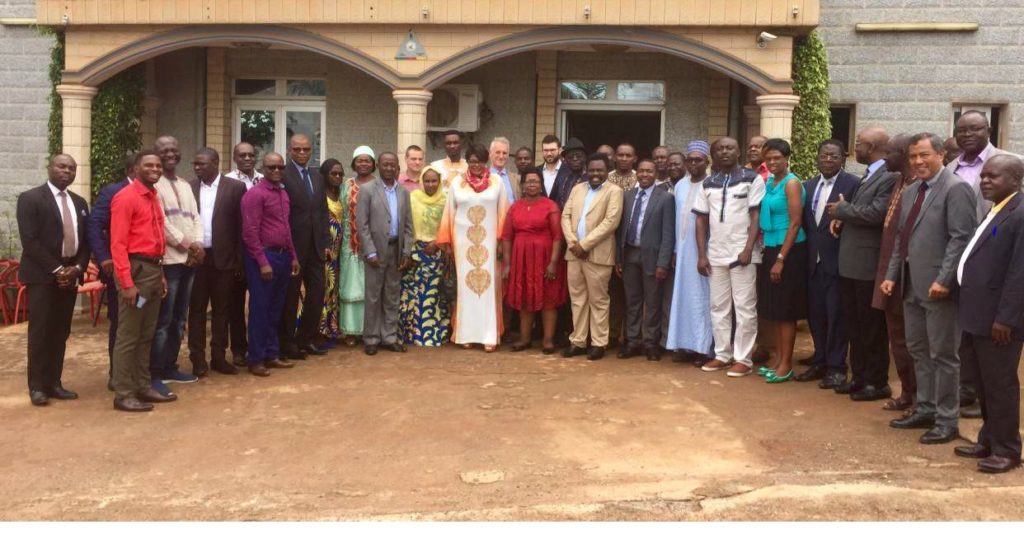

03.05.2019
As part of the joint evaluation of the VPA FLEGT in Cameroon, a national exchange and synthesis workshop on the progress and challenges of the VPA was organized with stakeholders on 16 and 17 April 2019.
The FLEGT VPA (Voluntary Partnership Agreement) between Cameroon and the European Union (EU) signed on 06 October 2010 and entered into force in December 2011 is not operational to date. At the meeting of the Joint Monitoring Committee (CCS) on 17 May 2018, the EU and Cameroon agreed to carry out a joint review of the Agreement and its implementation.
Initiated in February 2019, this joint review mission began with a first phase of surveys and consultations of the various stakeholders on the VPA-FLEGT’s assessment and the results were presented during a national exchanges and synthesis workshop from 16 to 17 April 2019 in Mfou (Yaoundé). The objectives of this workshop were to validate these results, to agree on the progress and challenges of the VPA and to identify the main challenges and the main orientations for the future of the VPA-FLEGT process in Cameroon.

The workshop brought together about fifty participants representing all the groups’ stakeholders (administration, private sector, civil society, development partners, research), and organized around technical sessions. The private sector was represented by GFBC, AEFNC / SEFNA and FECAPROBOIS.
The results of the inventory of VPA through the preliminary survey were presented according to four themes that were the subject of group work to enrich the conclusions of the surveys with challenges and recommendations:
It should be noted, however, that one of the fundamental disagreements between VPA parties is the evaluation of SIGIF 2 and the follow-up required for its deployment.
Fund topics concerning the private sector could be addressed, including the reform of the legal framework, the follow-up of the SIGIF 2, the consideration of individual traceability systems, the recognition of certification in the LAS, the development of a domestic market of legal timber.
Furthermore, the private sector has identified the challenges for VAP relaunch that would stimulate and facilitate the involvement of operators in the VPA, such as private sector motivation for sustainable forest management certification, operationalization of SIGIF 2 or another traceability system, the generalization of the use of the Open Timber Portal to increase the level of transparency, the encouragement of the private sector for the adoption of a traceability system, the formalization of a public purchasing policy for legal timber to promote a domestic market for legal timber, and the initiative for a new progressive roadmap (focus first on export timber, then domestic wood later).
The next steps of the Joint Review have been presented, which will lead to the development of the roadmap for the implementation of the VPA-FLEGT Cameroon (scheduled for early July). The full report of this workshop is available on request for ATIBT members.